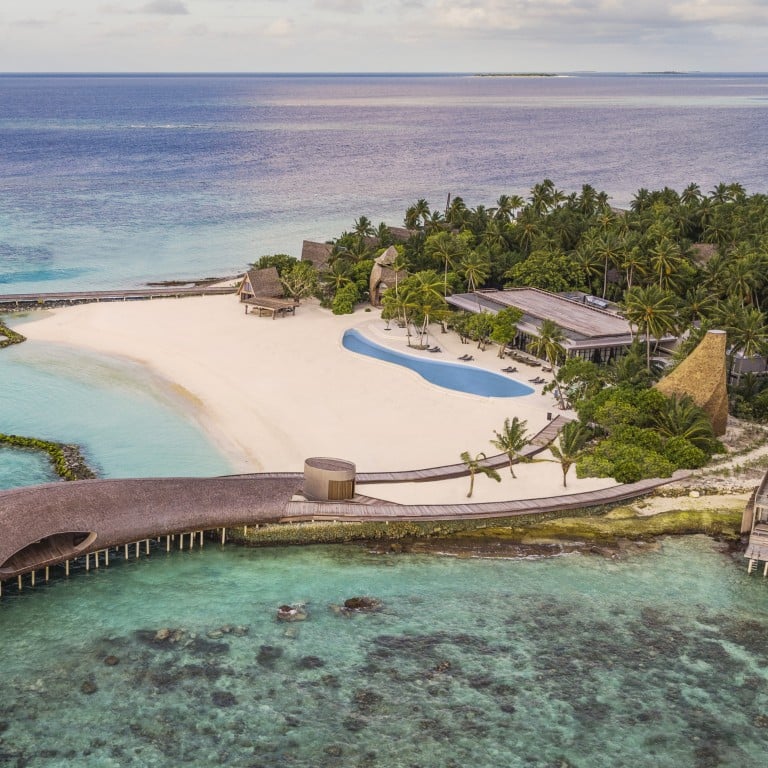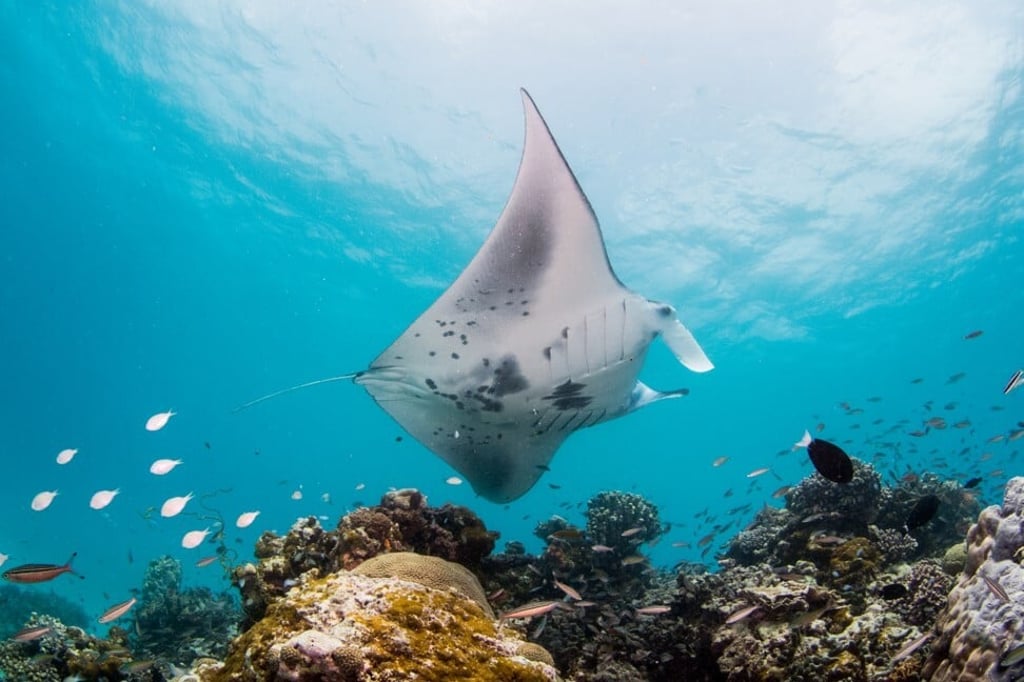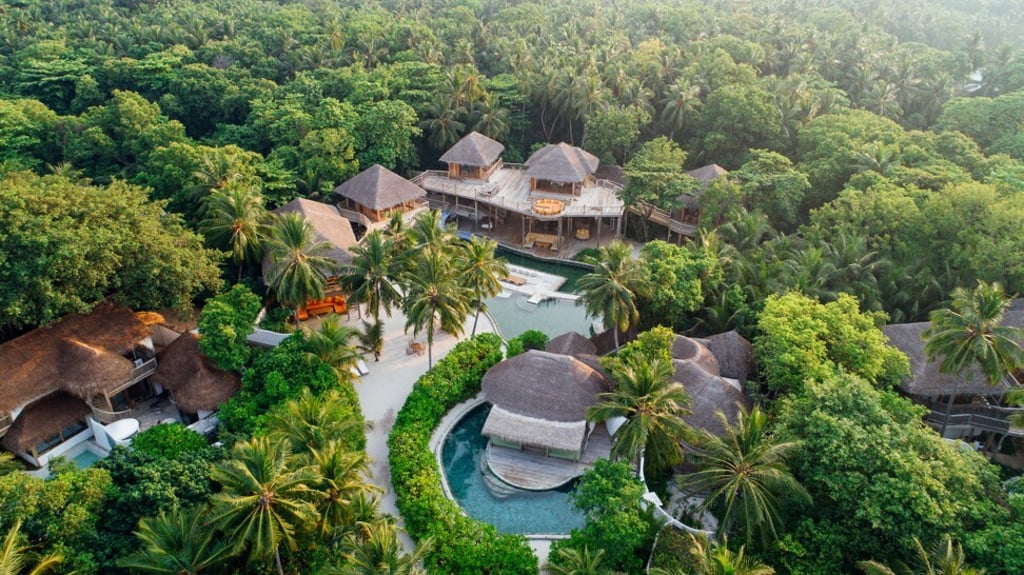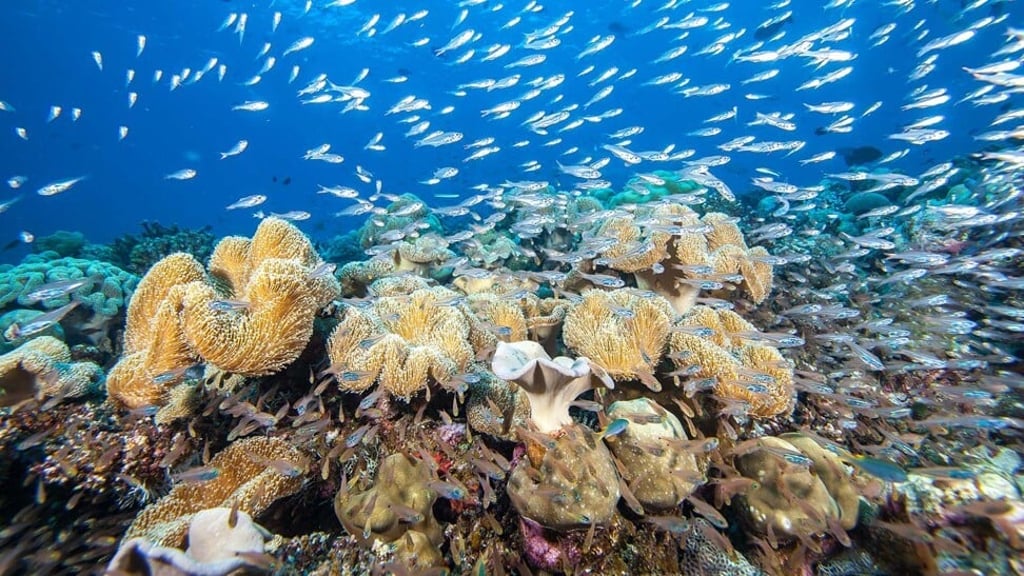Maldives climate crisis: How island resorts by Four Seasons, InterContinental, Soneva, St. Regis and W are building sustainable luxury tourism as sea level rises

Reviving tourism after the pandemic is vital for the Maldives’ economy, but threatened by climate change, government and high end resorts are making sustainability and the environment an equal priority
An island nation in the Indian Ocean, the Maldives derives 30 per cent of its GDP and 90 per cent of its tax revenues from tourism. Facing the coronavirus outbreak, the tropical paradise closed its borders in March and announced its intention to recommence its tourism in July.
According to the report “Impact of the Covid-19 Crisis in the Maldives” by the Maldives Ministry of Economic Development, the latest forecasts shows that the decline in tourist arrivals will be in the range of 50-63 per cent for 2020.

However, the archipelago faces still bigger challenges. Its 26 low-lying atolls could be among the first victims of sea level rise, one of the effects of unchecked global warming. A decade ago, the then-government announced an ambitious goal of becoming the first “carbon neutral” nation by 2020. Lots has changed politically since then. With a half-metre rise in sea level potentially making 200 of Maldives’ islands unliveable, the new government decided to take action, steering the country towards pursuing a low-carbon footprint – in lockstep with more hotel development.
“The tourism sector has strong interest in helping the agencies responsible for environment and conservation, both for the sake of the tourism industry itself, as well as for the sake of future generations of Maldivians,” said the Ministry of Tourism (MoT) in its recent Tourism Master Plan.

As a signatory to the UN’s Sustainable Development Goals that aim for responsible consumption, climate action, poverty elimination and other global targets by 2030, the Maldives has its work cut out, particularly in light of a tourism-gutting Covid-19 catastrophe.
But even before that, the MoT had drafted policies on those issues: its 2012-17 plan recommended everything from more environmental education, improving waste management, developing regulations for marine ecosystems, a responsible visitor programme to raise awareness and reduce energy consumption, switching from imported fossil fuel to renewable power (75 per cent of resorts were expected to comply by 2017), and incentivising sustainable investment.
Some of that is helping: the World Travel Awards nominated Maldives for Sustainable Tourism Destination and Leading Green Destination awards this year. In July, parliament was planning on creating a Climate Act.

Maldives is getting some help from the country’s 130 luxury resorts and five-star hotels (with 25 more under construction as of 2018). Carbon neutrality may be a challenge in a place where tourists and power often arrive by dirty private jets and diesel travel between islands, but sustainability is not necessarily out of reach.